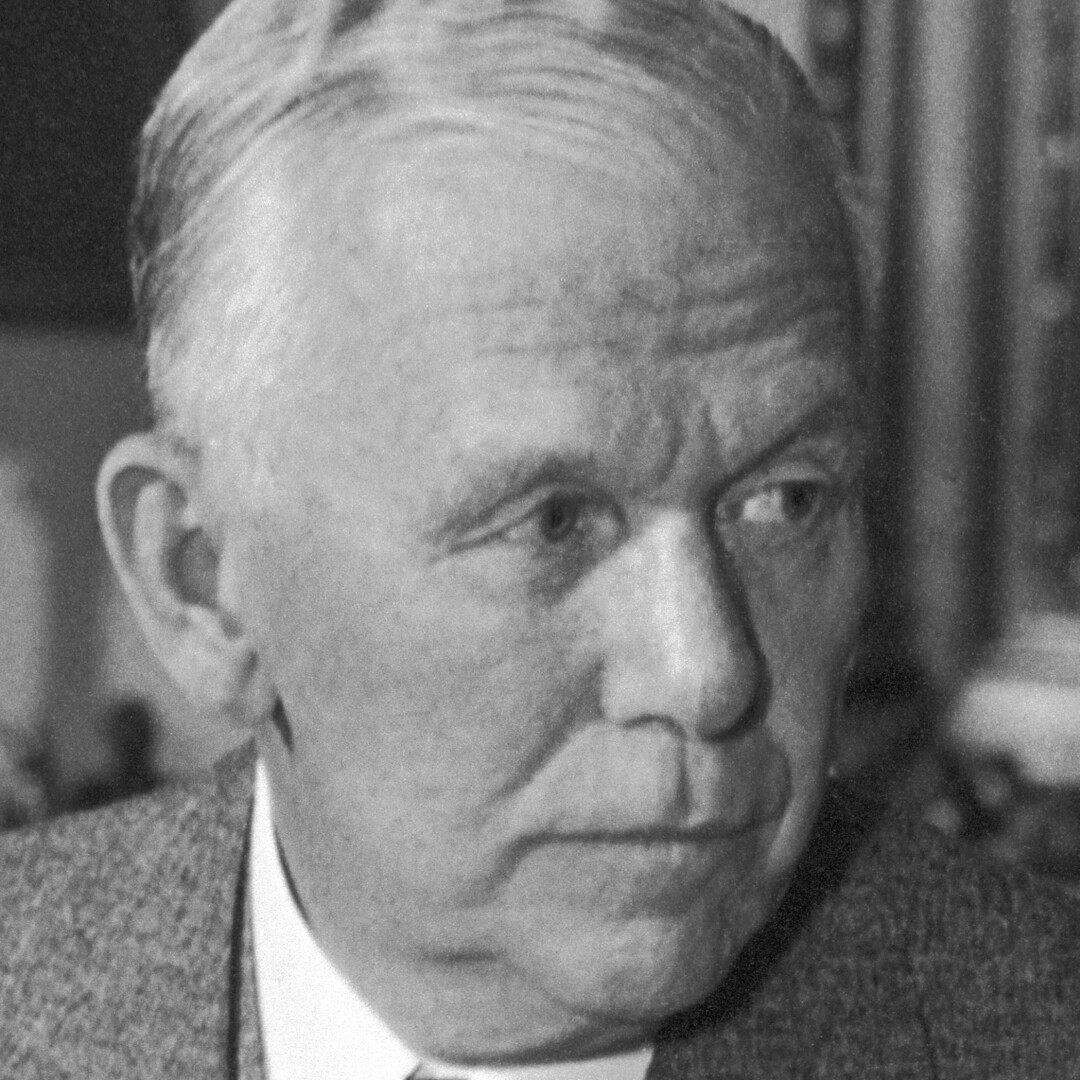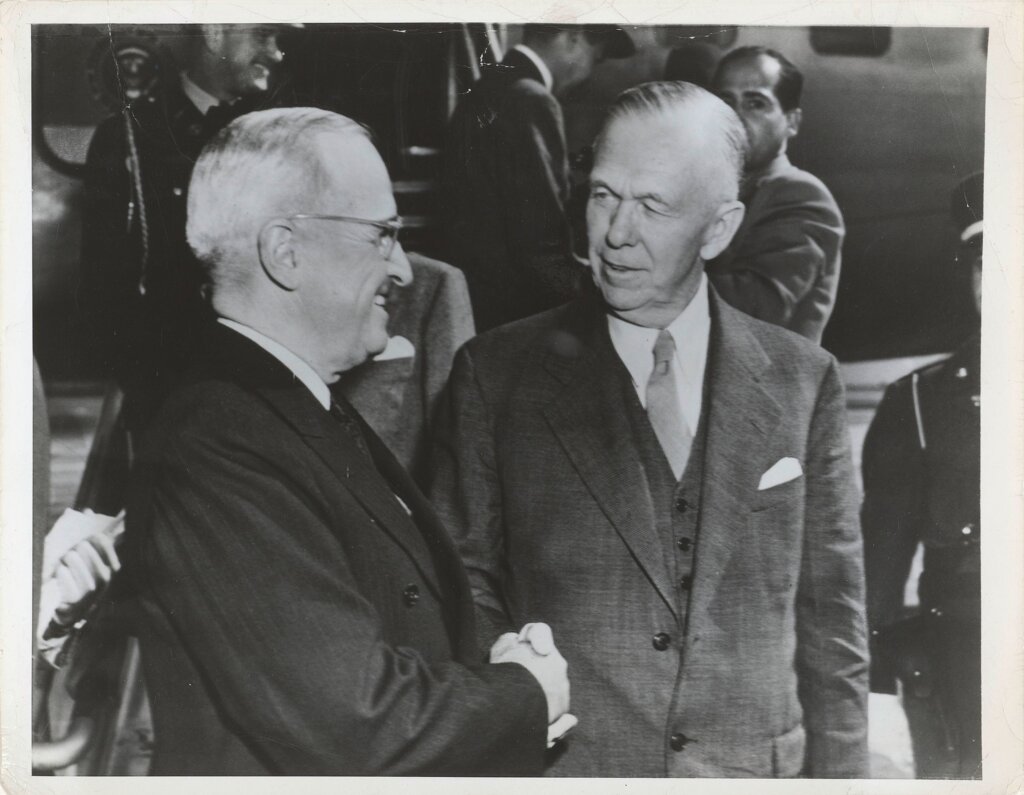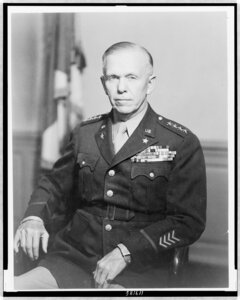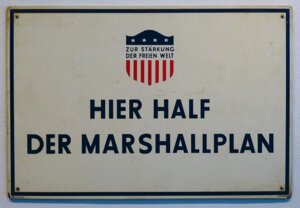George C. Marshall
Speed read
George Catlett Marshall was awarded the Nobel Peace Prize for proposing and supervising the plan for the economic recovery of Western Europe after World War II.

Full name: George Catlett Marshall
Born: 31 December 1880, Uniontown, PA, USA
Died: 16 October 1959, Washington, D.C., USA
Date awarded: 30 October 1953
The Marshall plan for peace
George Marshall was awarded the Nobel Peace Prize for his post-WWII economic reconstruction programme for Western Europe. When the USA entered the war against Japan and Germany in 1941, Marshall was military chief of staff with overall responsibility for planning the US war effort. Marshall was the strategist behind the successful invasion of Normandy in June 1944, and he helped to plan the use of the atom bomb against Japan in August 1945. The final authorisation to use the bomb was issued by President Harry Truman. In 1947 Truman named Marshall secretary of state, and together they developed the economic reconstruction programme for Europe. The goal was to quickly enhance living conditions in the war-torn nations. Truman and Marshall believed this would be crucial to preventing an upsurge of support for communism.

"Nobel's Peace Prize is not given to Marshall for what he accomplished during the war. Nevertheless, what he has done, after the war, for peace is a corollary to this achievement, and it is this great work for the establishment of peace which the Nobel Committee has wanted to honor."
Carl Joachim Hambro, Presentation Speech, 10 December 1953.
Marshall and the invasion of Normandy
On 7 December 1941, Japan attacked Pearl Harbor. Just a few days later, Hitler declared war on the USA. Marshall was military chief of staff with responsibility for US war policy in both Asia and Europe. In 1944 Marshall gained approval for a direct attack on Germany via the English Channel. British Prime Minister Winston Churchill had long opposed such an action, fearing large-scale British losses. But after a successful invasion in June 1944, it became clear that Germany would soon be defeated. Winston Churchill praised George Marshall highly in the aftermath, calling him “the organiser of victory.”
"I know a great deal of the horrors and tragedies of war."
George C. Marshall: Nobel Lecture, 11 December 1953.

Marshall and the atom bomb
Norwegian communists demonstrated against Marshall when he was in Oslo, calling him the “Hiroshima general.” This was in reference to Marshall’s participation in the decision to drop the atom bombs “Little Boy” and “Fat Man” on the Japanese cities of Hiroshima and Nagasaki in 1945. It was Marshall who proposed using the atom bomb against Japan to President Truman. He never regretted this move, maintaining that it shortened the war and saved the lives of hundreds of thousands of American soldiers. Japan surrendered after the bombings, and the USA did not have to invade the country.
Marshall aid
In 1947 Marshall was appointed secretary of state. The USA and Soviet Union were on a collision course in Europe as well as Asia. President Truman declared that the USA would fight communism throughout the world. In the same year, Marshall proposed a plan to provide Europe with economic aid to prevent “hunger, poverty, desperation and chaos.” In addition to purely humanitarian relief, the aid was also intended to stem the tide of communism, which was rising in Europe due to the Soviet Union’s massive war efforts against Nazi Germany and communist promises of a better life.

The military should be controlled by the civilian sector
George Marshall learned much through taking part in both world wars. This gave him a major role in dealing with the conflict between the USA and Soviet Union after 1945, as secretary of state and, later, of defence. After the 1949 rise to power of Communists in China and the attack on South Korea by Communist North Korea a year later, Marshall was criticised for being “soft on communism.” Rightwing circles felt that the military should be given freer reign, also regarding use of atomic weapons. Marshall staunchly maintained that in a democracy, the military must obey the will of popularly-elected representatives.
"Never the most brilliant student, or even the best read, he had steadily grown as a man and a soldier until he could be truly called a statesman."
Ed Gray: “General of the Army. George C. Marshall. Soldier and Statesman,” page 734, WW Norton 1990.
Learn more
George Catlett Marshall, America’s foremost soldier during World War II, served as chief of staff from 1939 to 1945, building and directing the largest army in history. A diplomat, he acted as secretary of state from 1947 to 1949, formulating the "Marshall Plan", an unprecedented program of economic and military aid to foreign nations ...
Disclaimer: Every effort has been made by the publisher to credit organisations and individuals with regard to the supply of photographs. Please notify the publishers regarding corrections.
Nobel Prizes and laureates
Six prizes were awarded for achievements that have conferred the greatest benefit to humankind. The 14 laureates' work and discoveries range from quantum tunnelling to promoting democratic rights.
See them all presented here.
